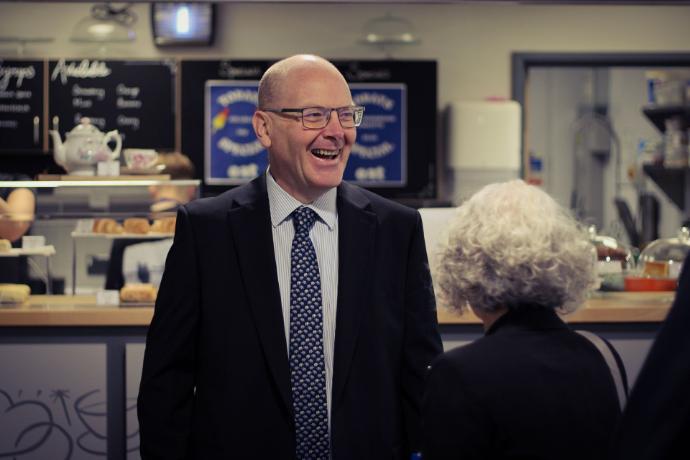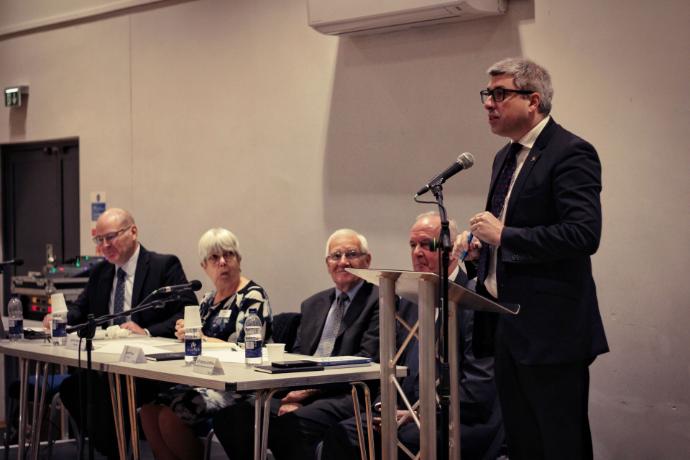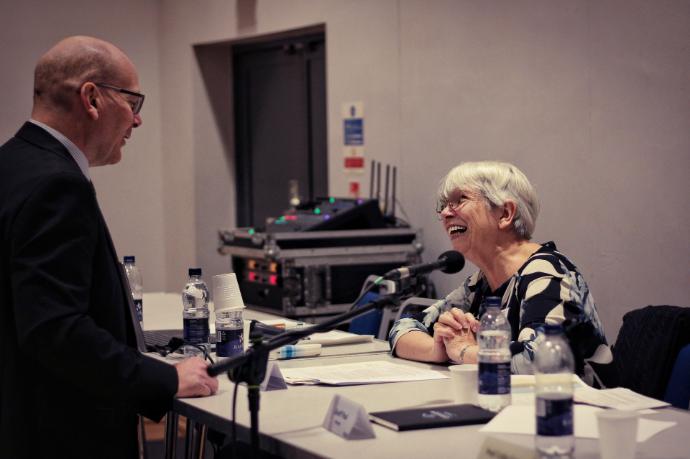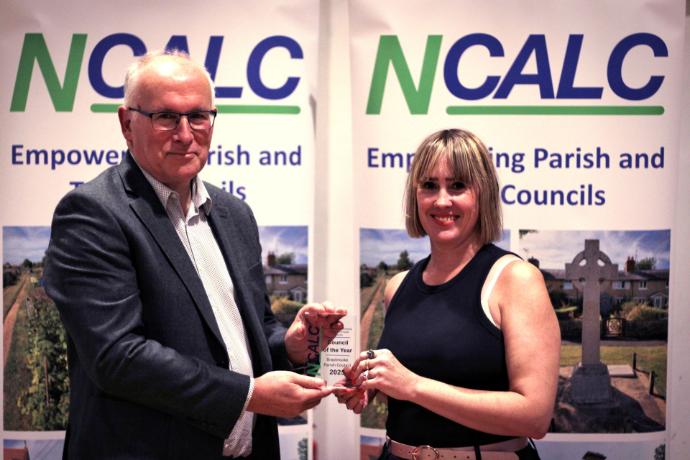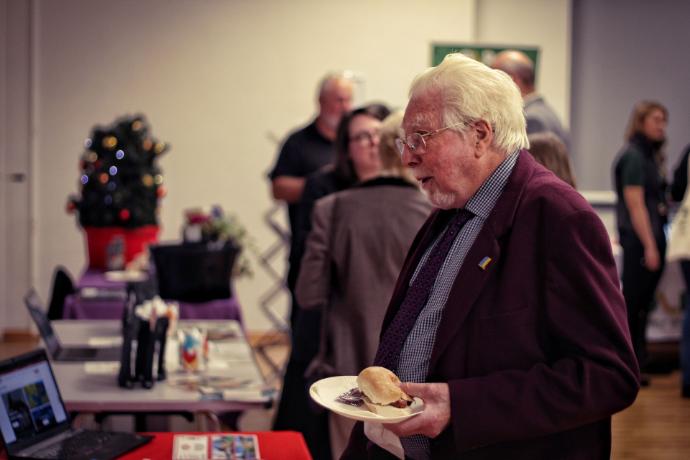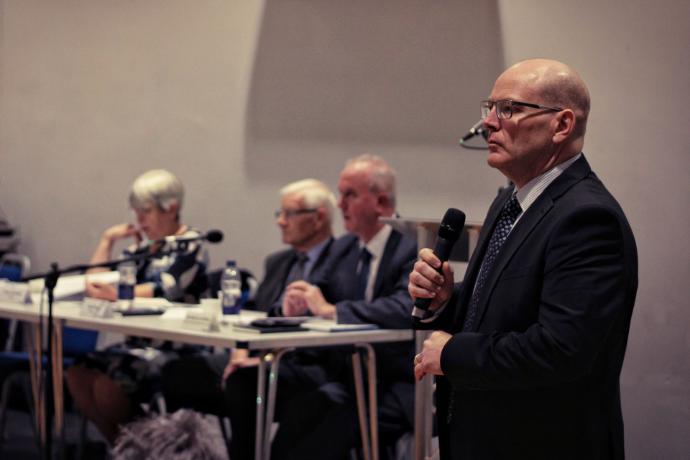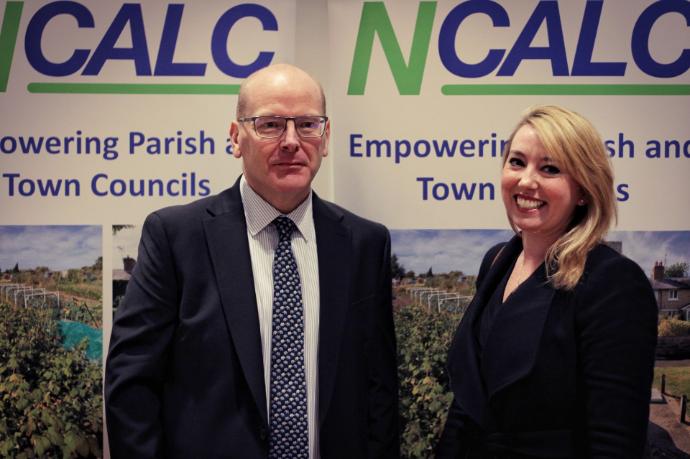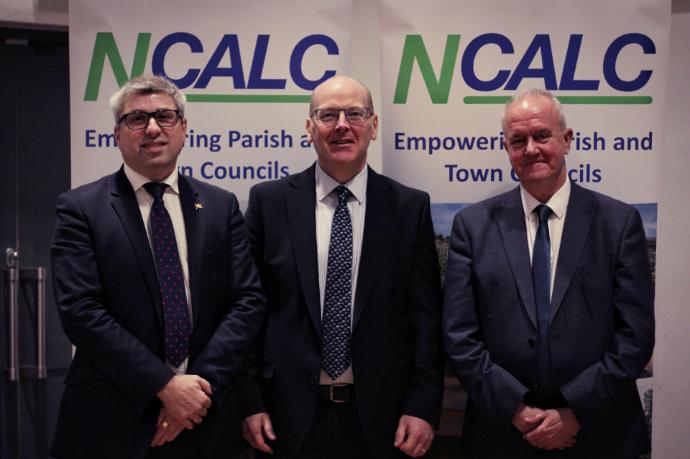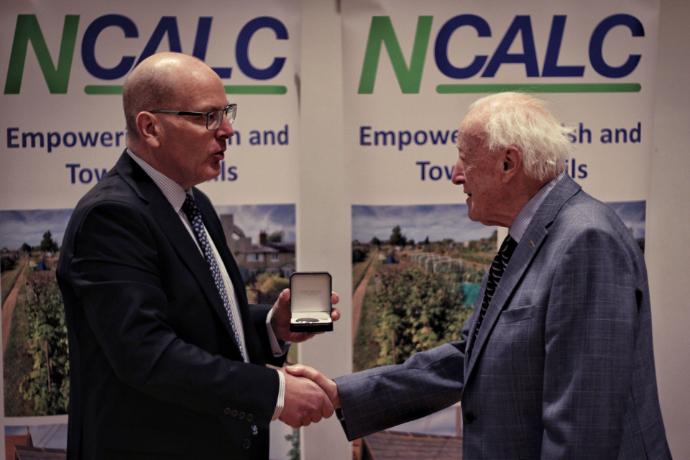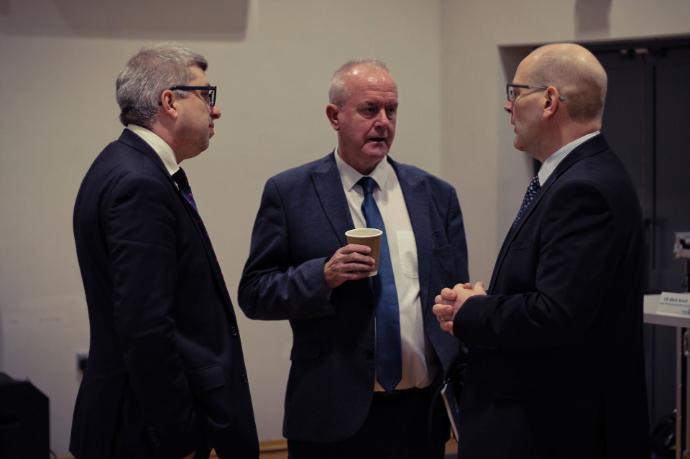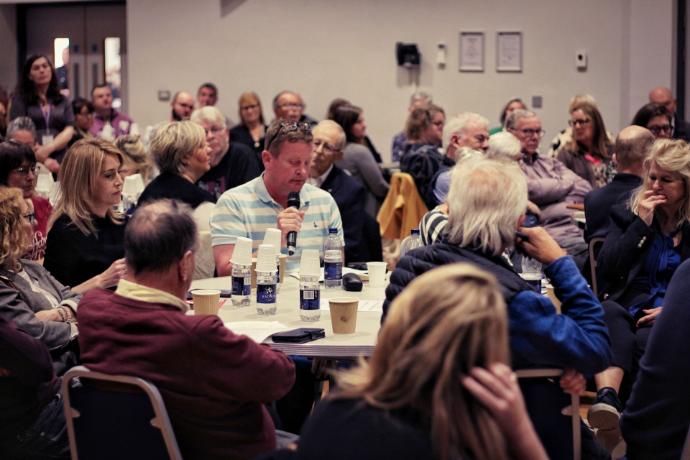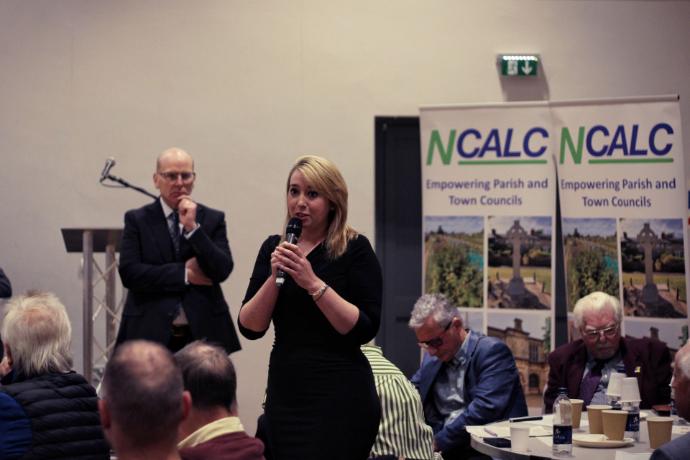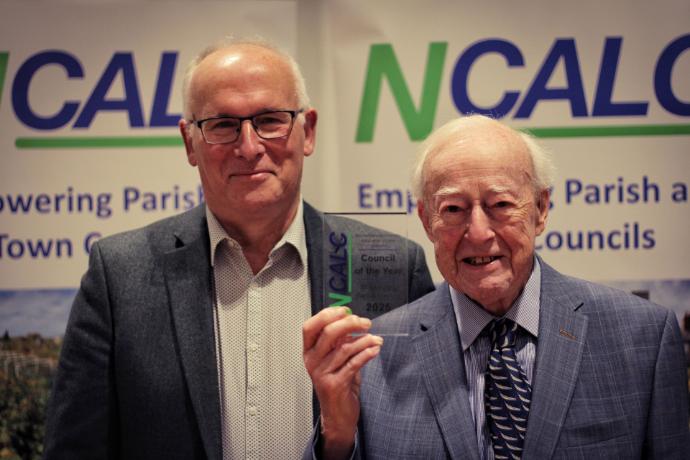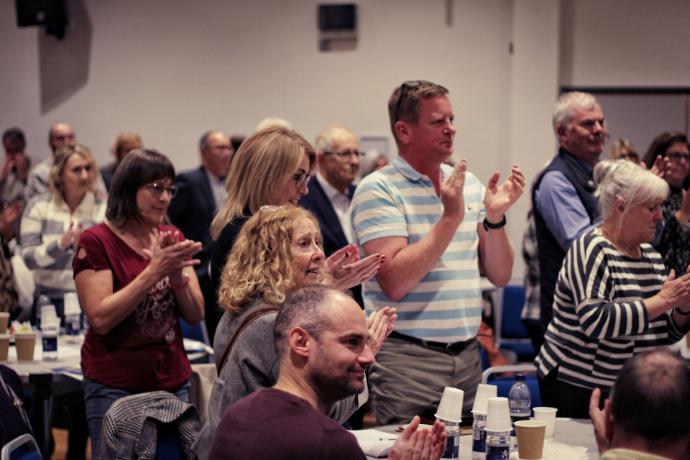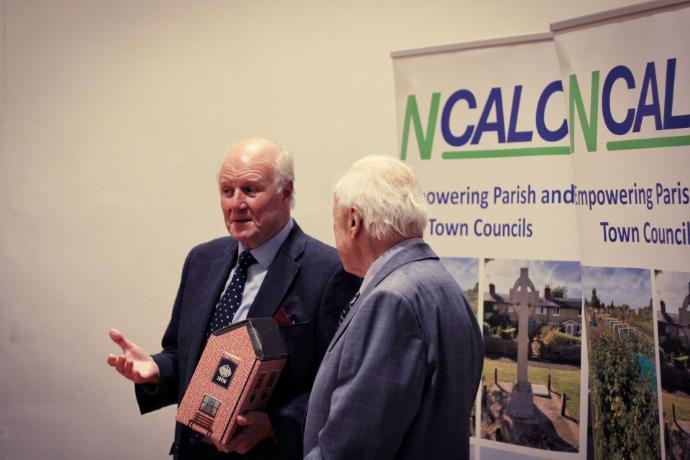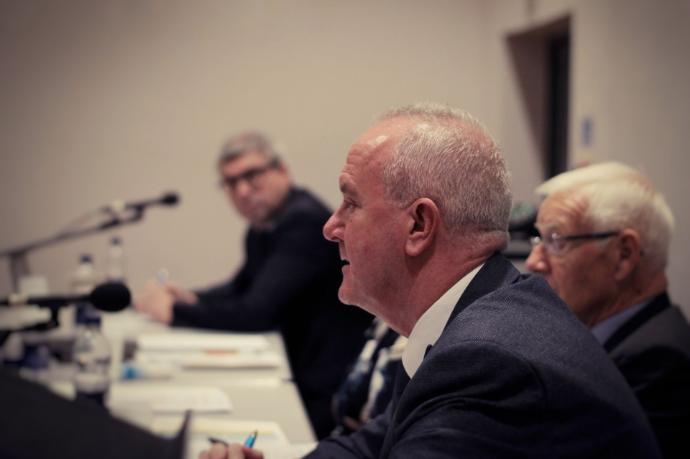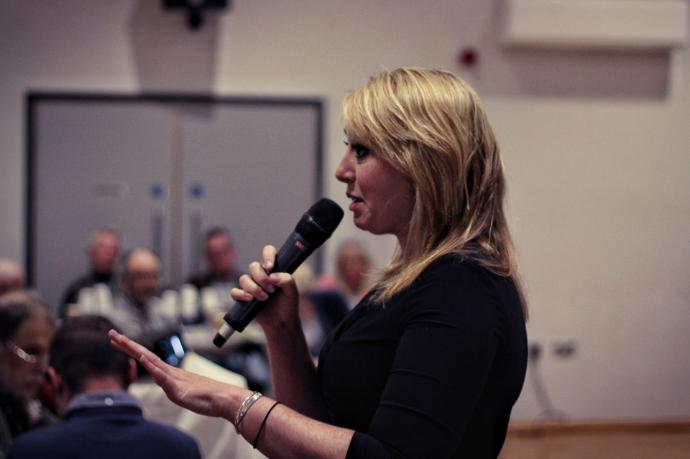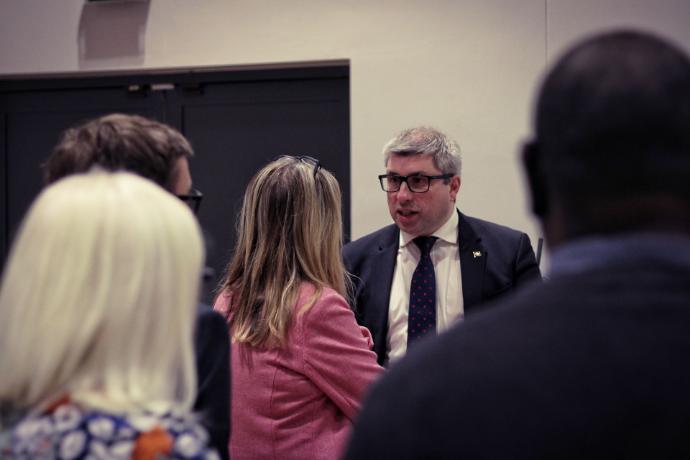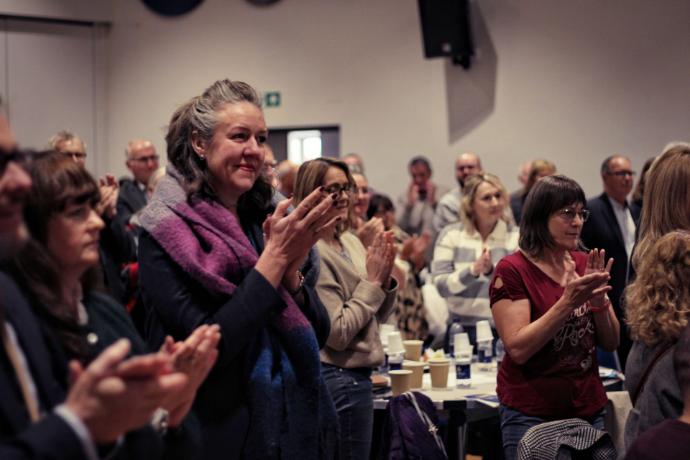78th Annual Conference & AGM - 2025
Introduction
The 78th Northants CALC Annual Conference and AGM took place at the Moulton Community Centre on Saturday 4 October 2025. Delegates were encouraged to arrive from 0915 for hot refreshments, networking, and meeting the various exhibitors. The proceedings began promptly at 1000.
Annual General Meeting Business Summary
The formal business portion of the meeting was chaired by Lynn Lavender. The AGM approved the re-appointment of Kate Brown Accountant as the Association’s auditor for the year ending 31 March 2026 noting that Northants CALC is exempt from statutory audit but maintains this independent inspection to provide assurance to member councils.
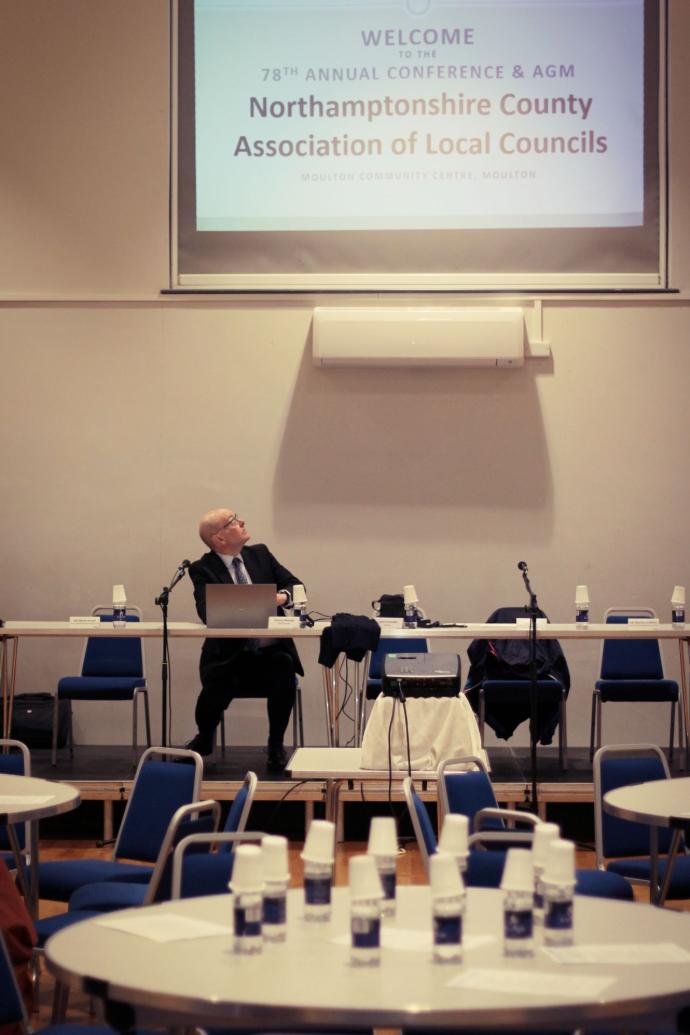
Regarding director appointments for 2025/26, Richard Lewis (Rushden Town Council) and Greg Lavers (Silverstone Parish Council) stood down.
A tribute was paid to Richard Lewis, who retired from Rushden Town Council during the local elections this year, for his service, which included chairing the board from 2013 to 2016.
The Appointments Panel recommended the re-appointment of six existing directors and the appointment of two new directors following interviews with a strong pool of applicants: Andrew Holt (Upton Parish Council) and Steve Tucker (Raunds Town Council).
The resulting board composition was confirmed to include a mix of 5 councillors and 3 clerks, 5 representatives from West Northamptonshire, and 3 from North Northamptonshire, across small, medium, and large councils.
The Annual Report for the year ending 31 March 2025 was received, confirming the Association’s financial robustness with a surplus for the year of £11,762. Key governance changes outlined in the report included the formal decision to discontinue the role of Honorary President, effective from this AGM, and the agreement to convert future hybrid board meetings to in-person only, reflecting the view that fully dedicated online or in-person formats lead to better decision-making.
The AGM agreed to increase membership subscription fees for the year ending 31 March 2027 by 4.2%. This increase aligns with the board’s policy of tracking inflation (CPIH July), which the board felt protected services and maintained value for money.
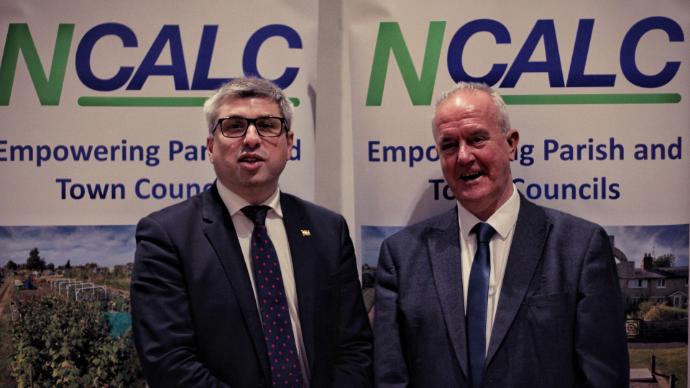
Unitary Council Leaders Q&A Session
The formal business concluded, Lynn Lavender lead a highly anticipated Q&A session with the Unitary Council Leaders: Cllr Martin Grifiths (North Northamptonshire Council - NNC) and Cllr Mark Arnull (West Northamptonshire Council - WNC).
In his opening statement, Cllr Martin Grifiths reaffirmed his strong support and respect for the vital work done by parish and town councils, often with "scant resources". He delivered a clear assurance: that while he is the leader of NNC, parish and town councils "will not be forced to take on any assets or any responsibility for services that they do not wish to take on". He noted that NNC’s staff turnover rate had dropped below 10%, highlighting the goal of becoming an employer of choice.
Cllr Mark Arnull highlighted the daunting challenges faced by WNC, noting the administration's priority is making the council "visible again" and putting local people back in touch with local government. He stressed the immediate necessity of tackling a £50 million gap in the budget without cutting services, requiring intense efficiency drives. Cllr Arnull urged parish councils to maintain strong communication, stating: "please write to us and please communicate" so the administration can help address specific issues.
Delegates raised questions regarding planning, customer service, and asset devolution.
Planning and Warehouses: Questions arose regarding large warehouse developments, specifically in Thrapston. Cllr Griffiths acknowledged the difficulty of legacy planning issues but stressed the urgent need to "refresh our local plan" to protect the local environment. He confirmed that planning committees act as a quasi-judicial function, meaning administrations cannot influence their specific decisions. He also expressed strong support for placing solar panels on warehouse roofs rather than converting agricultural land.
Customer Service and Planning Improvement: Issues of unanswered phone lines and planning delays were noted. Both leaders confirmed that response rates across both unitary councils require improvement, with Cllr Arnull citing the recruitment of seven new building control officers at WNC to bolster the Planning Service.
Household Waste Recycling Centres (HWRC): In response to several questions, Cllr Arnull explained that WNC had implemented a booking system for its HWRCs. This measure aims to address the issue of approximately 20% of waste coming from outside West Northamptonshire, which resident taxpayers pay for, and to combat misuse by commercial contractors. Both leaders committed to tackling fly-tipping across Northamptonshire.
Devolution: The leaders reaffirmed their ongoing commitment to achieving the South Midlands Authority (SMA) devolution deal, despite recent resistance from other authorities. Regarding asset devolution, both leaders committed to supporting parishes that are willing to take on responsibilities but reiterated that no council will be forced to accept assets or services against their will.
Guest Speaker Address: Professor Colin Copus
Following the Q&A and a refreshment bake with cakes and another opportunity to meet the exhibitors, Professor Colin Copus, Emeritus Professor of Local Politics, De Montfort University, delivered a keynote address entitled "Keeping Local Government Local – What Does Unitarisation Mean for Parish Councils and English Local Government?".
Professor Copus, who previously served as a councillor on multiple tiers, argued that as principal authorities grow larger, the role of parish and town councils becomes "more vital" in keeping local government "rooted in real places". He pointed out that English local government is a "creature of statute," meaning it lacks any independent or constitutionally protected right to exist, allowing central government to dictate its structure.
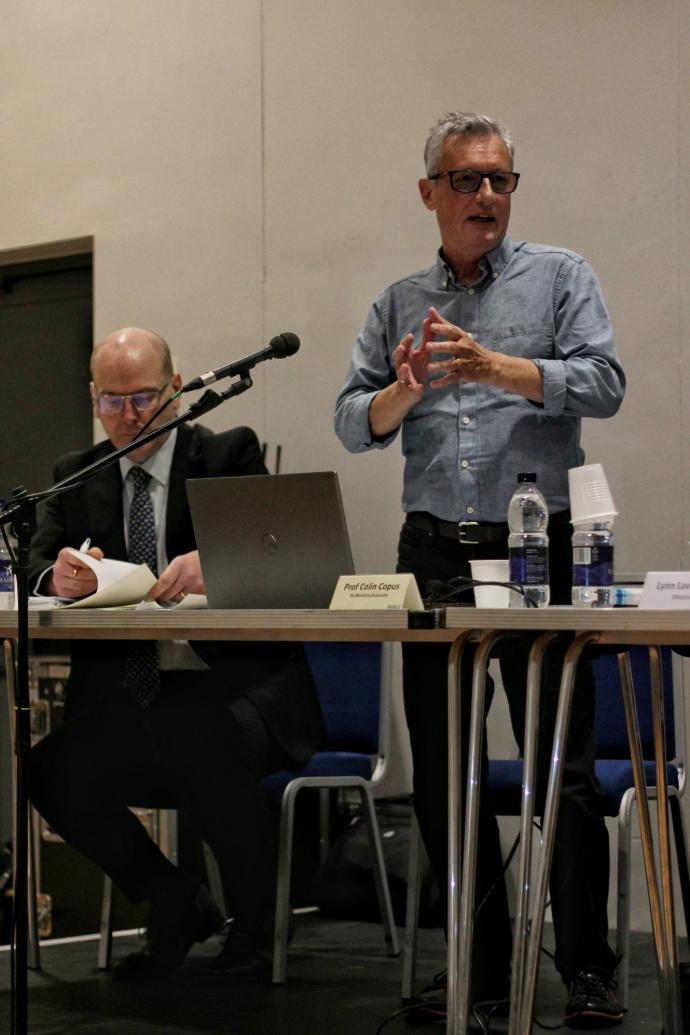
He critiqued the trend towards larger local government units, noting that the UK already has the largest councils in Europe, and continually making them bigger does not guarantee better services or efficiency, but often results in the corrosion of democracy and representation. Colin highlighted that the current push for unitaries with a target population of 500,000 has no clear supporting evidence.
He stressed the unique position of parishes: they are the only tier "not facing an existential threat" that currently plagues counties and districts. This lack of threat places parishes in a position of strength to influence the debate and demand that devolution matches their capacity. He emphasised the importance of CALCs as a unified and strong voice for parishes where cross-board agreement exists, concluding that parish and town councils are the "only thing to survive 'R' day".
Awards and Closing Remarks
Danny Moody read out a commendation for the inaugural Jeffrey Greenwell Council of the Year Award, which was presented to Braybrooke Parish Council. The council, which has just 340 electors was commended for its resilience, innovation, and leadership, specifically citing the nationally recognised Griffin Trail project and the council’s adoption of Artificial Intelligence (AI) for modern governance.
A tribute was paid to Jeffrey Greenwell, retiring President, whose role is being discontinued as part of the Association’s governance modernisation programme. Jeffrey, appointed CBE in 1991 for services to local government and formerly the first Chief Executive of the new Northamptonshire County Council in 1973, was thanked for his extraordinary service and was presented with a silver Jean Pierre pocket watch as a small token of the Association’s gratitude. Jeffrey said “What a joy it has been to meet all of you and your predecessors in this marvellous county of ours. I've been so impressed with the spirit of service to the community that I've encountered here in Northamptonshire. Whatever the problem, the local council and the local councillors and their clerk have risen to the occasion. Local communities have always resolved issues with cheerfulness and good spirit and good humour. You have enriched my life by my opportunity to join with you in promoting the values of local government and of community self-help. Parish and town councils are the strength and the future of government in Northamptonshire. You are all heroes and heroines, and I salute you. This has been a wonderful day, and I wish you well and will watch you from the touchlines. Thank you so much for the honour."
The 78th Annual Conference & AGM concluded promptly at 1300. The 79th is scheduled for Saturday 3 October 2026, again at Moulton Community Centre.
